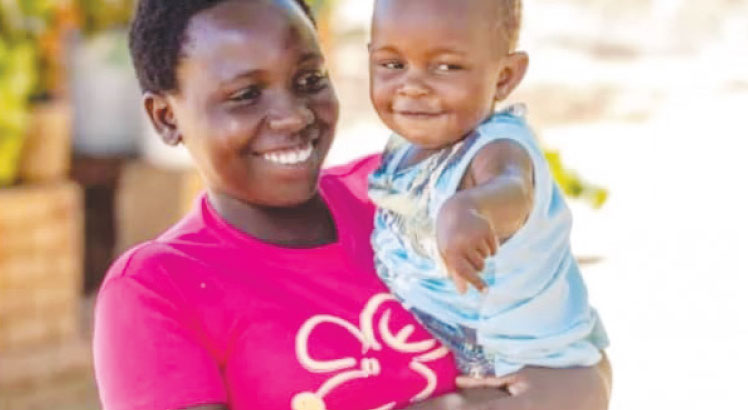Fighting malnutrition with quality complementary foods
In the serene Khufi Village, nestled under the watchful eye of Traditional Authority Malenga in Nkhotakota District, the journey of motherhood took an unexpected turn for Hajira Mussa at the tender age of 13.
Deprived of proper guidance and support structures, she found herself navigating the intricate responsibilities of motherhood alone, making inevitable missteps along the way.
Mussa’s lack of knowledge about the essential six food groups became apparent as she grappled with raising her son without a good understanding of an ideal diet. The consequence was a series of health complications that unfolded throughout his early years.
Reflecting on those challenging times, she shared: “Back then, I didn’t even know anything about the six food groups, and so I raised my son in total ignorance without any guidance on an ideal diet for him.”
Fast-forward to today, the transformation in Mussa’s life is evident as she proudly cradles her robust six-month-old daughter. This time around, armed with knowledge acquired through participation in care groups, Mussa ensured a healthy start for her child.

Visibly delighted, she recounts: “When I realised that I was pregnant, I immediately went to the hospital where I was given advice on how to take care of my pregnancy. During the pregnancy, I visited the hospital about seven times until I gave birth to a very healthy baby.”
The 23-year-old attributes the well-being of her newest family member to the invaluable care and advice from the care group that is part of Malawi Government’s nutrition programme called Afikepo.
Unicef and Food and Agriculture Organisation (FAO) are implementing the programme with funding from the European Union. This is a ground-breaking initiative that integrates agriculture, health and nutrition to enhance nutrition and food security in Malawi.
Mussa emphasises the significant impact of the care groups on her parenting choices, particularly highlighting the importance of exclusive and continued breastfeeding.
“Back then, before the baby turned six months, we used to supplement breastfeeding with other foods such as porridge, but now we have learned that we should not feed the child with anything, but breast milk until they are over six months old.
As a beneficiary of a pass-on programme under Afikepo, Mussa not only gained knowledge but also received practical resources to enhance her family’s nutrition.
Rabbits, chickens and goats provided through the programme supplement her family’s diet, while fruit seedlings now grace the gardens surrounding her house, adding both beauty and nutritional value.
“The availability of meat, vegetables, and fruits has made it possible for me to provide all food groups for my family,” Mussa happily declares. “These days, because of the availability of these livestock, we are able to have a nutritious diet, and we can choose to eat meat and vegetables. We have a wide variety to choose from.”
Sharing the sentiment of improved nutrition, Mussa’s neighbour, 21-year-old Alabiyene Chirwa, sits outside her house, feeding her one-year-old son, Swaiba, a wholesome plate of porridge.
Grateful for the teachings of Afikepo, She remarks: “Afikepo has taught us a lot of things, especially how to take care of our children in terms of nutrition. In my case, I know that I have to make it a point to feed my son with food from all the six food groups.
“This is because we were taught that from six months to 24 months of age, we should give the child food from the six food groups while continuing with breastfeeding. That is why I add eggs, soya, groundnuts and some other nutritious foods to his porridge.”
In Nkhotakota, the Afikepo programme is not just a source of knowledge but a catalyst for positive change, empowering mothers like Mussa and Chirwa to provide a foundation for good health and well-being for their children.
It is a testament to the transformative impact of comprehensive initiatives like Afikepo that address the intertwined aspects of agriculture, health, and nutrition in fostering resilient communities.






One Comment